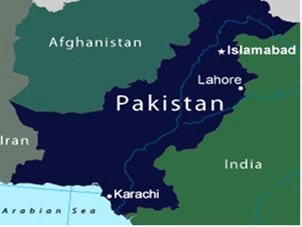POINT PREVALENCE OF COLORECTAL CANCER IN A MEGA CITY OF PAKISTAN, KARACHI – A CROSS SECTIONAL STUDY
Keywords:
Cancer, colorectal, ethnicities, genders, point-prevalenceAbstract
Background and Objective: Globally, Colorectal Cancers are also third most common cancers and fourth leading cause of death due to carcinoma. Burden of Colorectal Cancers is also high in Pakistan. The main risk factor for Colorectal Cancer is age, however, other risk factors are e.g. family history, irritable bowel disease, sedentary life-style, high visceral adipose tissues, smoking and alcohol. Hence; the main objective of current study was to determine point prevalence of Colorectal Cancers in a mega city of Pakistan, Karachi; a representative population of Pakistan. It is hypothesized that incidences of Colorectal Cancers would be higher in Karachi than rest of the country.
Materials and Methods: The retrospective cross-sectional study was conducted in Karachi. Duration of study was from January-2015 to October-2019. Data has been collected from two state-owned and four private hospitals of Karachi. Precision analysis technique was used to determine the sample size of study. Study is approved by Board of Advanced Studies & Research, University of Karachi (Reference Number: BASR/01046/Pharm.). Objective of study was explained to patients before initiation the study; informed consent was taken from each patient. S.P.S.S (Statistical-Package-for-Social-Sciences) software version 22 was used to analyze the data.
Results: Among 1,617 patients: male 54.35% (N=879); female 45.64% (N=738). Mean age of diagnosis of colorectal cancer: male 49.51±14.72 years; female 45.28±13.52 years. Significantly higher point prevalence was found in ethnicity speaking Sindhi compared with ethnicity speaking Balochi (p=0.001), Pashto (p=0.0001), Punjabi (p=0.001) and Siraiki (p=0.0001); Urdu speaking compared with Balochi speaking (p=0.0001), Pashto speaking (p=0.0001), Punjabi speaking (p=0.0001) and Siraiki speaking (p=0.0001) in male. In female; Sindhi speaking point prevalence is significantly higher than Siraiki speaking (p=0.028); Urdu speaking point prevalence is significantly higher than patients speaking Balochi (p=0.012), Pashto (p=0.002), Punjabi (p=0.002) and Siraiki (p=0.0001).
Conclusion: Allocation of resources are required at governmental and non-governmental level for early screening. National cancer registry program should also be initiated to support health policy makers for the development of counter strategies.

Peer Review History:
Received: 5 February 2023; Revised: 10 March; Accepted: 28 April 2023, Available online: 15 May 2023
Academic Editor: Prof. Cyprian Ogbonna ONYEJI , Obafemi Awolowo University, Ile-Ife, Nigeria, conyeji@oauife.edu.ng
, Obafemi Awolowo University, Ile-Ife, Nigeria, conyeji@oauife.edu.ng
Reviewers:
 Dr. Bilge Ahsen KARA, Ankara Gazi Mustafa Kemal Hospital, Turkey, ahsndkyc@gmail.com
Dr. Bilge Ahsen KARA, Ankara Gazi Mustafa Kemal Hospital, Turkey, ahsndkyc@gmail.com
 Dr. A.A. Mgbahurike, University of Port Harcourt, Nigeria, amaka_mgbahurike@yahoo.com
Dr. A.A. Mgbahurike, University of Port Harcourt, Nigeria, amaka_mgbahurike@yahoo.com
Downloads

Published
How to Cite
Issue
Section

This work is licensed under a Creative Commons Attribution-NonCommercial 4.0 International License.









 .
.